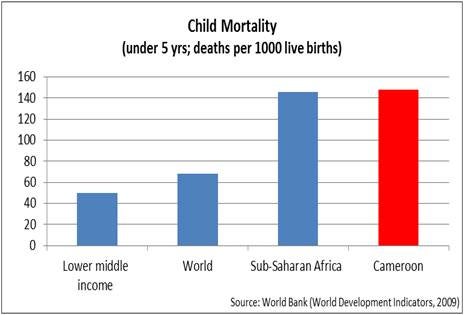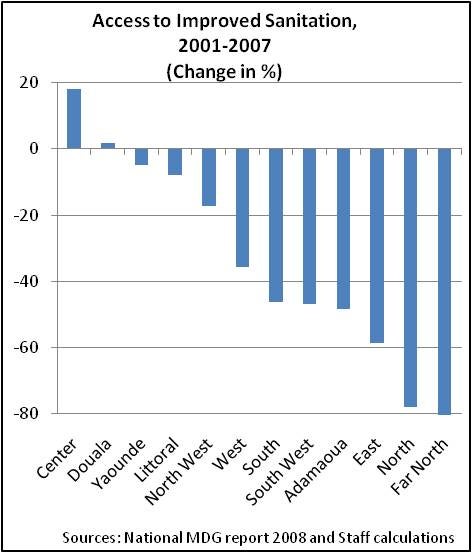The quality of service delivery is fundamental for people's wellbeing, especially for the poor. This is why the situation in Cameroon is worrisome.
Indicators for service delivery in Cameroon tend to trail behind those observed in countries at similar income levels; and for indicators such as primary school completion or child mortality, the country does even worse than the average for Sub-Saharan Africa.
What is more, the situation in some of the less developed regions of the country has worsened in the past decade.
Particularly striking is the declining access to sanitation and drinking water, as well as the increase in child mortality in some of the regions.
Despite the emphasis on primary education, there was a decline in attendance in the East. Also, in the richest regions some indicators have deteriorated—especially in Yaoundé-- for access to drinking water; sanitation and infant mortality; and access to drinking water in Douala.
The Government of Cameroon is relying on decentralization as its principal policy tool to improve service delivery, but for this to work, some key building blocks need to be addressed first.
The current legal framework governing fiscal decentralization needs to be clarified, responsibilities are overlapping and in many respects open to different interpretations. To date, there is little true transfer of spending responsibilities, and municipalities are mobilizing very little own revenue: a crucial missing element in establishing a hard budget constraint. Municipalities rely instead heavily on financial transfers from the center, which under the current system favors the richer municipalities. The current budgeting process does not fully reflect local priorities nor foster fiscal discipline at the local level.
Against this background, expectations for better services have, however, been built, and could generate a backlash if not met.
But, with decentralization in Cameroon at an early stage, it is an opportune time to start addressing these building blocks and ensure that fiscal decentralization will indeed result in better delivery of services for all Cameroonians.
Read the full Cameroon Economic Update for July 2011




Join the Conversation